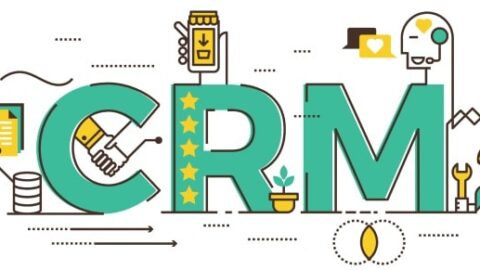How to Improve Law Firm Productivity
In the dynamic and demanding world of legal services, productivity is not just about working harder but working smarter. As a seasoned patent lawyer and a master copywriter, I’ve seen firsthand how the right strategies can transform a law firm’s operations. This article aims to provide law firms with practical, actionable advice on enhancing productivity. We’ll explore five key strategies, including the use of AI tools like PowerPatent and efficient project management techniques. So, how to improve productivity at law firm?
Table of Contents
Embracing Technology: The Role of AI in Law Firms
The legal industry, traditionally slow in adopting new technologies, is now at a crossroads with the advent of Artificial Intelligence (AI). AI tools offer an unprecedented opportunity to streamline operations, reduce manual workload, and improve accuracy.
PowerPatent: A Game Changer in Patent Drafting
Take, for instance, PowerPatent. This AI-powered tool is revolutionizing the way patents are drafted. By automating significant parts of the patent drafting process, it not only saves time but also reduces the likelihood of human error. PowerPatent’s sophisticated algorithms can analyze vast amounts of data, identify potential patentability issues, and even suggest improvements to patent applications. For law firms specializing in intellectual property, incorporating tools like PowerPatent can significantly enhance productivity and service quality.
Other AI Applications in Legal Work
Beyond patent drafting, AI applications in legal work include document analysis, contract review, legal research, and even predicting legal outcomes. These tools can process information at a speed and depth that is impossible for human lawyers, freeing up valuable time for more complex, strategic tasks.
Enhancing Communication and Collaboration for Law Firm Productivity
Effective communication and collaboration are vital in any law firm. The complex nature of legal work requires constant coordination among team members.
Leveraging Communication Tools
Utilizing communication tools like Slack, Microsoft Teams, or Zoom for internal communication can streamline discussions, facilitate quick decision-making, and reduce email overload. These tools also support remote work environments, a growing trend in the legal industry.
Encouraging Collaborative Work Culture
Fostering a collaborative work culture where information and knowledge are openly shared can significantly boost productivity. When team members feel comfortable sharing insights and seeking advice, it leads to more comprehensive and effective legal strategies.
Continuous Learning and Development
The legal field is continuously evolving. For law firms to remain productive and competitive, ongoing learning and development are essential.
Investing in Training and Professional Development
Investing in the training and professional development of lawyers and support staff ensures that the firm stays abreast of the latest legal trends, technologies, and best practices. This could include regular training sessions, attending seminars, or even enrolling in online courses.
Encouraging a Culture of Innovation for Law Firm Productivity
Encouraging a culture of innovation where team members are motivated to explore new ideas, technologies, and methodologies can lead to improvements in processes and client services.
Efficient Project Management: Key to Organizational Productivity
Managing projects efficiently is crucial in a law firm setting, where multiple cases and clients demand attention simultaneously.
Implementing Project Management Software
Project management software tailored for legal practices can help in organizing workflows, tracking billable hours, and managing client communication. Tools like Clio Manage, Asana, or Trello enable lawyers and support staff to stay on top of deadlines, delegate tasks effectively, and maintain a clear overview of each case’s progress.
Regular Review and Adaptation Processes
Incorporating regular review and adaptation processes into project management helps in identifying bottlenecks and inefficiencies. Regular team meetings and feedback sessions can ensure that everyone is aligned with the firm’s goals and working at their optimum capacity.
Streamlining Administrative Tasks
Administrative tasks, while crucial, can consume a significant portion of a law firm’s resources.
Automating Routine Tasks for Law Firm Productivity
Automating routine administrative tasks like time tracking, billing, and document management can free up valuable time for lawyers. Tools like TimeSolv, QuickBooks, and document management systems can handle these tasks efficiently.
Outsourcing Non-Core Activities
Outsourcing non-core activities like accounting, IT services, and even certain legal research tasks can allow lawyers to focus on their core competencies and client services.
Prioritizing Client-Centric Services
As we delve deeper into strategies for enhancing law firm productivity, it’s imperative to focus on the heart of the practice: the clients. Prioritizing client-centric services not only improves client satisfaction but also streamlines your firm’s operations, ultimately boosting productivity.
Utilizing Client Management Software
Investing in client management software can significantly enhance the client experience. These tools can help in organizing client information, tracking communication, and ensuring that no client request goes unaddressed. Platforms like Salesforce or Zoho CRM are designed to provide a holistic view of client interactions, making it easier to provide personalized and timely services.
Simplifying Client Onboarding Processes
Simplifying the client onboarding process is another crucial step. Clear, streamlined procedures for new clients, supported by digital tools for document submission and data collection, can save time for both the client and the firm. This also sets the tone for a professional and efficient relationship moving forward.
Fostering a Productive Work Environment for Law Firm Productivity
The productivity of a law firm is deeply intertwined with its work environment. Creating an environment that encourages focus, efficiency, and well-being can have a profound impact on overall productivity.
Designing a Functional Office Layout
The physical layout of your office should facilitate easy communication while also providing quiet spaces for focused work. This might involve having open-plan areas for collaborative work and private rooms for tasks requiring deep concentration.
Promoting Work-Life Balance for Law Firm Productivity
Promoting a healthy work-life balance is essential in maintaining a productive workforce. Overworked lawyers are more prone to errors and burnout. Encouraging reasonable work hours, offering flexible working options, and recognizing the importance of personal time can lead to a more engaged and efficient team.
Leveraging Analytics for Strategic Decision Making
Data analytics is not just for tech companies. Law firms, too, can leverage analytics to make informed, strategic decisions.
Analyzing Performance Metrics
Using analytics to track performance metrics like case turnaround time, billable hours, and client satisfaction can provide valuable insights into your firm’s operations. This data can help in identifying areas for improvement and in making informed decisions about resource allocation.
Predictive Analytics for Case Outcomes
Predictive analytics tools can help in assessing the likely outcomes of cases, guiding resource allocation, and strategic planning. This can be particularly useful in fields like litigation, where understanding the probabilities of different outcomes can significantly impact case strategy.
Implementing Sustainable Practices for Improving productivity at Law Firm
Sustainability in business practices is becoming increasingly important, and law firms are no exception. Implementing sustainable practices not only contributes to environmental conservation but can also lead to cost savings and improved public perception.
Going Paperless
Transitioning to a paperless office is a major step towards sustainability. Digital document management reduces the need for physical storage, cuts down on printing costs, and makes document retrieval more efficient. You might need a paper copy to keep some records, so hiring a legal records management service could be beneficial for those specific cases.
Encouraging Green Initiatives
Encouraging green initiatives within the office, like recycling, reducing energy consumption, and using eco-friendly products, can foster a culture of sustainability and responsibility.
How do you measure success in a law firm?
Success in a law firm can be measured by various factors, such as the number and quality of cases handled, the reputation and recognition of the firm and its lawyers, the satisfaction and loyalty of the clients, the revenue and profitability of the firm, and the professional development and well-being of the staff. Different law firms may prioritize different aspects of success depending on their vision, mission, values, and goals.
Who has the highest position in a law firm?
The highest position in a law firm is usually the managing partner or senior partner. This person is a seasoned lawyer who has exceptional legal skills, leadership abilities, and a track record of success. They oversee the firm’s operations, strategy, and finances, and provide guidance and mentorship to other lawyers. They also represent the firm in external matters, such as business development, client relations, and industry networking.
Conclusion on Law Firm Productivity
Improving productivity in a law firm is about leveraging technology, managing projects efficiently, fostering effective communication, continuously learning, and streamlining administrative tasks. By adopting these strategies, law firms can not only enhance their operational efficiency but also provide better services to their clients.

David is a dynamic, analytical, solutions-focused bilingual Financial Professional, highly regarded for devising and implementing actionable plans resulting in measurable improvements to customer acquisition and retention, revenue generation, forecasting, and new business development.












